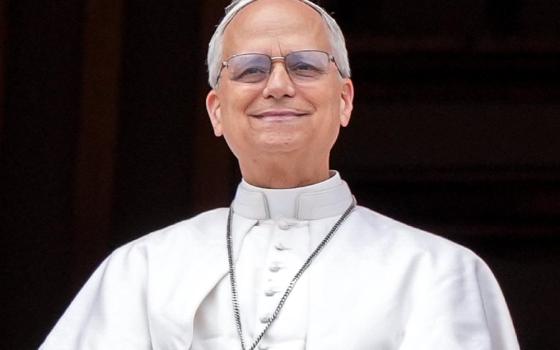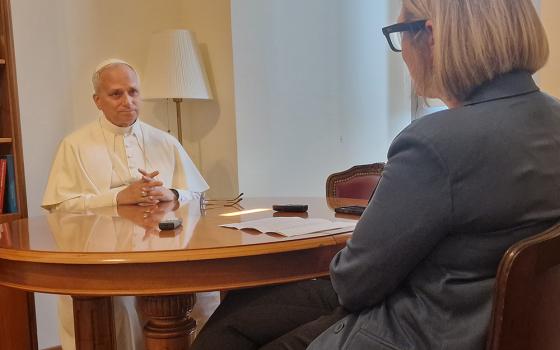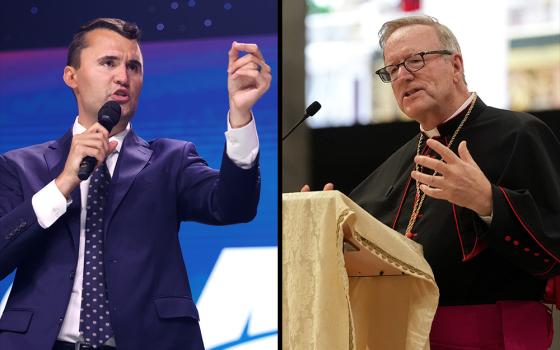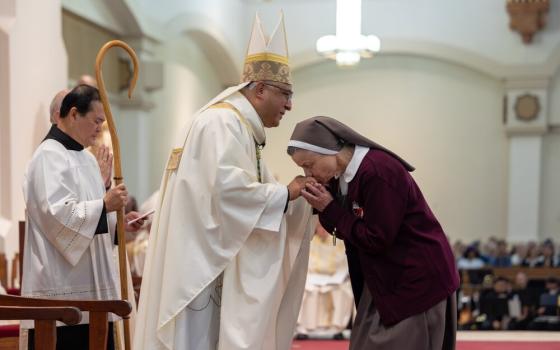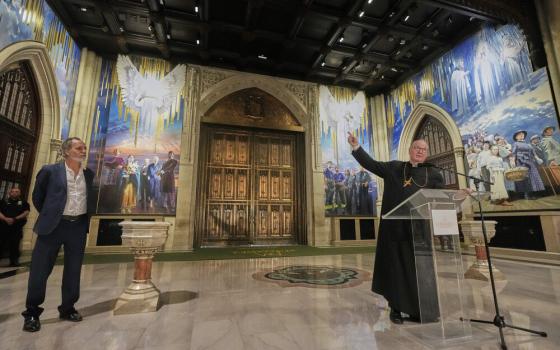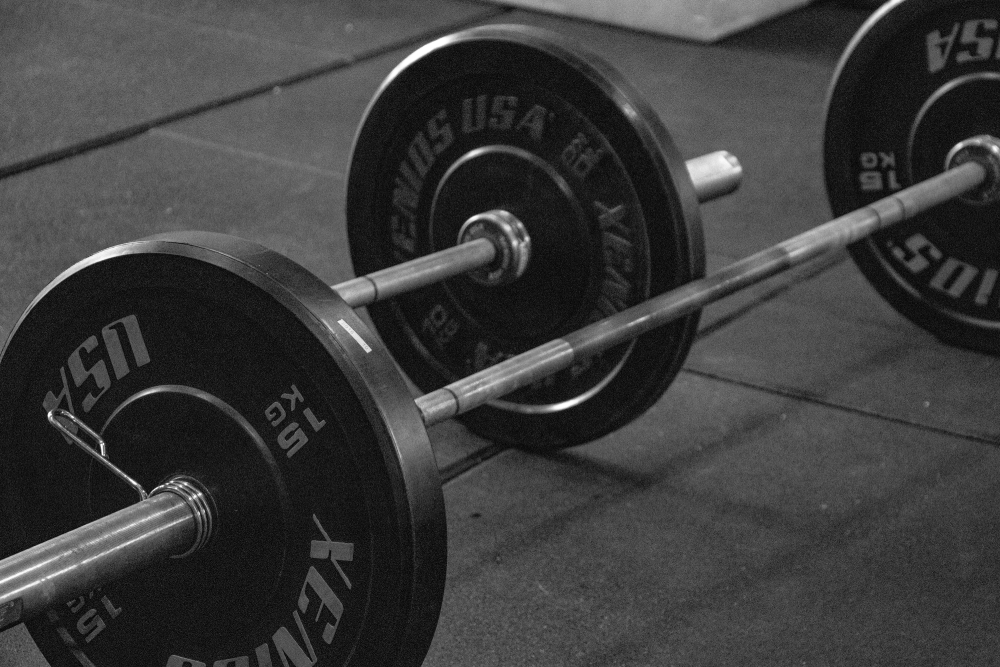
(Benjamin Brunner/Unsplash)
"Are you a Catholic man who's fat and ugly?," the man on my screen asks. "Well, now you can just be ugly!"
I'm watching a Catholic fitness coach advertise his business of getting Catholic men to "practice what you preach by taking care of your body." In another video, a different influencer who describes themselves as an "Unchivalrous Catholic" has a video in which he responds to Trump granting refugee status to South African immigrants by saying: "Funny how once we started taking in attractive immigrants liberal white women are fighting for borders."
In the "manosphere," a word that refers to a pocket of podcasts, social media accounts and influencers whose primary audience is young men, content varies: There are hangout podcasts focused on hookups and drunken nights out, fitness influencers who post motivational gym videos and hustler coaches with businesses to help men make money (sometimes in the form of pyramid schemes). Put simply, it's a digital space reflecting the modern ideal of what it means to be a man. And it has an interesting subsection in Catholicism.
Authentic masculinity always produces corporal acts of mercy. Any crafted ideal of manhood that doesn't include sheltering the homeless and feeding the hungry is warped.
You know you've found the Catholic manosphere if the influencers are working out, drinking beer, smoking cigars or eating a steak on a wooden cutting board while talking about the Latin Mass or the Crusades. Or commentators might be giving religious reactions to things like Chappell Roan publicly stating that she doesn't want kids or the controversial Olympic opening ceremonies last summer. Other influencers focus their content on dating tips, ostensibly helping Catholic men get a girlfriend who is "traditionally-minded."
The internet, like everything, should be used in moderation. And the kind of short form content common in this circle of influence only creates an echo chamber online that emphasizes harmful and, frankly, unchristlike ideals. If it must exist, the Catholic manosphere should push Catholic men away from the noise and division of the internet and toward the silence and meekness of Christ. If we make content on the internet, especially if we're stamping "Catholic" on it, our goal shouldn't be to get more views, but to create something that glorifies Christ and makes saints.
Advertisement
That's where the Catholic manosphere misses the mark. Here, so-called "virtues" center a masculinity in which being the loudest, fittest and edgiest means more than a strong interior life and actual spiritual fruit. Authentic masculinity always produces corporal acts of mercy. Any crafted ideal of manhood that doesn't include sheltering the homeless and feeding the hungry is warped.
Our historical mystics understood this. Catholic mysticism emphasizes the growing personal union one has with Christ; its end is oneness with Christ. Everyone is called to this encounter, and there are many male teachers, saints and church doctors who can serve as guides for modern men.
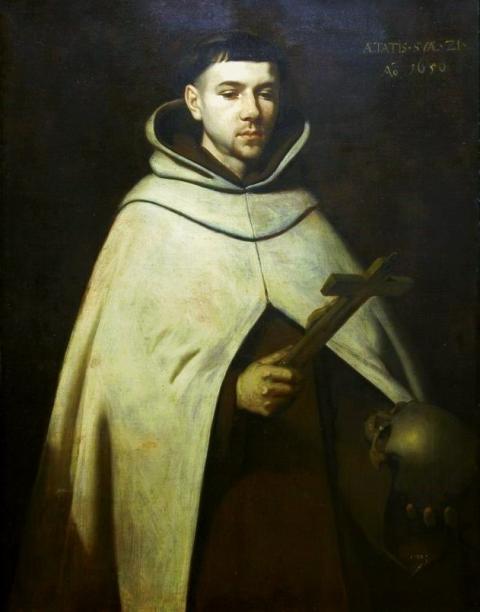
St. John of the Cross (Archdiocesan Museum in Katowice/Wikimedia Commons)
Take St. John of the Cross. A Spanish Carmelite during the height of the Reformation, his poetry "Dark Night of the Soul" and "Spiritual Canticle" focus on his longing for Christ. Alongside St. Teresa of Avila, another saint whom men can learn from, he reformed the Carmelite way of life. John's holiness led to his canonization, as well as his title of doctor of the church. Here is a true man, a man after God's heart, and yet he is all but omitted from the discussions in the Catholic manosphere. After all, being a poet doesn't fit into the manosphere's idea of masculinity. (Men are supposed to lift weights, not write poetry longing for Christ!)
More threateningly to these Catholic influencers, the mysticism of the church focuses not on how to better oneself, but on how to share one heart with Christ. Mysticism requires that we focus on our own soul and on Christ, not on getting in shape or getting a girlfriend. Taking care of one's body and desiring to have a life partner are good things, but our desires need to be first ordered towards Christ; and so too should we encourage others to first seek Christ.
The Catholic manosphere can be motivational or incendiary, but it isn't often helping men become more meek. So, men: don't look to the manosphere to learn masculinity — look to the mystics. If you like podcasts, try "St. Anthony's Tongue," which focuses on a different mystic every episode. Grab a book by a Catholic mystic, like The Interior Castle, written by Teresa of Avila, or Seven Storey Mountain, by Thomas Merton. Do a novena to St. John of the Cross. Let the mystics guide you to the truest representation of what it means to be a man: the one who became Man.

